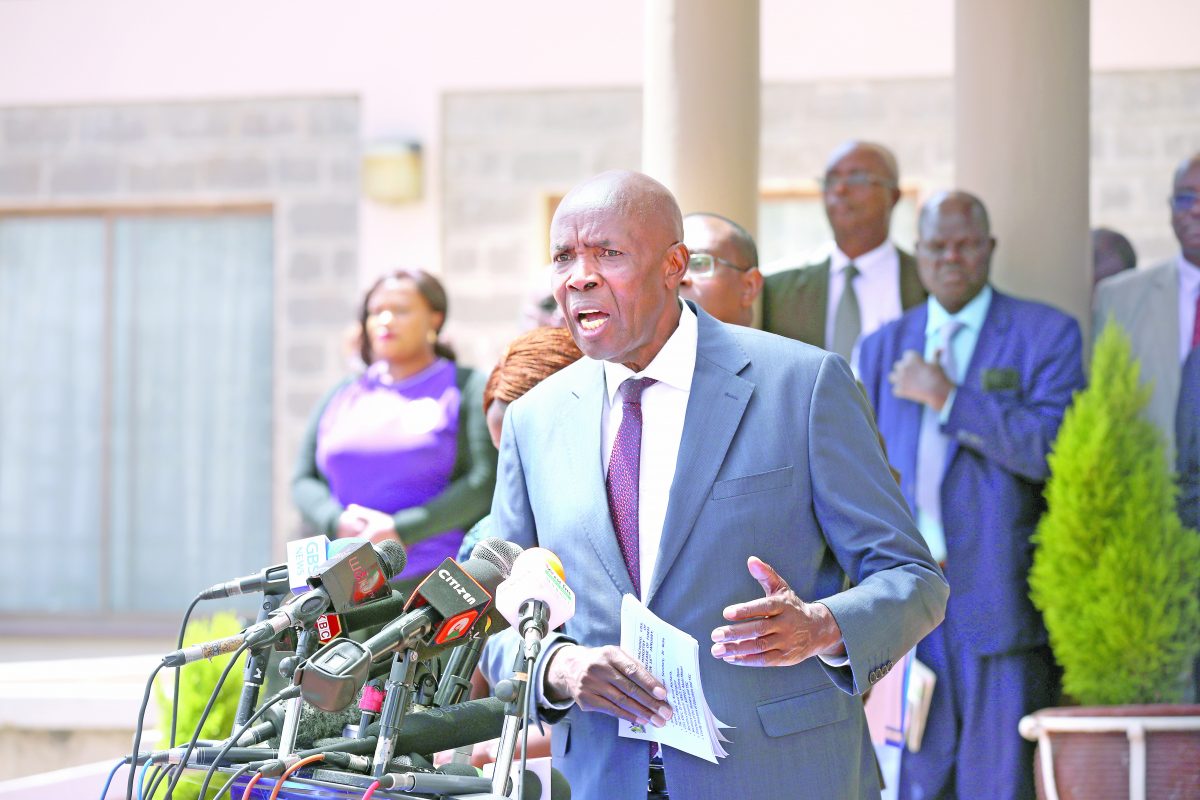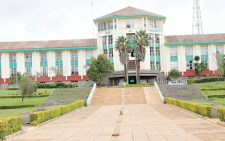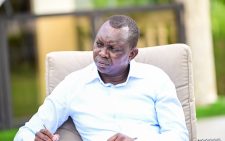Ticking bomb as first CBC cohort set for Grade 9

The country could be sitting on a waiting powder keg as the first cohort of the Competency-based Curriculum (CBC) class prepares itself to join Grade Nine, a stage where they are expected to decide on their career pathways.
It is while in Grade Nine that students decide which of the three pathways—Science, Technology, Engineering and Mathematics (STEM); Social Sciences; and Arts and Sports Science—to pursue.
And with only a year before the learners make resolute decisions that would determine their future and careers, the pupils are yet to be exposed to basic learning facilities such as laboratories. A needs assessment is also yet to be conducted to assign schools the pathways to pursue.
Educationists are also questioning why the government is yet to decide the criterion that will be used to place learners from Grade Nine in the senior school.
The Teachers Service Commission (TSC) is also yet to re-orient teachers who would teach Grade Nine and senior schools on the new system. Apparently, teachers assigned to Junior Secondary School (JSS) are either teaching for the first time or lack subject mastery in the areas they are tasked to handle due to shortage of teachers.
Usawa Agenda
“There is no plan in place at all. It is like we are waiting to stumble into Senior Secondary School (SSS) the same way we did to JSS. We have already been caught napping,” Emmanuel Manyasa, an educationist and the Director of Usawa Agenda, an education lobby group, told People Daily yesterday.
Dr Manyasa says challenges such as a shortage of facilities (classrooms, libraries, and labs), lack of teachers, and inadequate training that have posed significant obstacles since the inception of the Competency-Based Curriculum for the first batch of learners in JSS pose a major threat to transition to Grade Nine.
He adds that because of the rigours expected in Grade Nine, where the learners are expected to decide on their career pathways, there is a case for a radical shift in the implementation of the new level of learning.
“Learners in Grade Nine require an environment with furnished laboratories, libraries and adequate classrooms that are not there at the moment,” he says.
As a start, Manyasa says by now, the government should have made a clarification on an earlier announcement that 20 percent of the scores attained by learners in Grade 6 would be used to place them in SSS.
Confusion
And with the confusion apparently bedevilling the Kenya Primary School Education Assessment (KPSEA), Manyasa says it would be difficult to use part of that 20 per cent to determine the learners’ progression.
“It is also illogical to tell a learner who is barely 12 years old that whatever he does at that age would be used to determine his career progression and future. This is totally wrong,” he says.
“It is unfortunate that has not even begun. The teachers handling the learners should also be stable and permanent to be able to understand the capacities of their learners and work together in assisting them decide on their pathways.
“It is unfortunate that the government is yet to embark on the capacity assessment for teachers and classrooms. With only a year to learners joining Grade Nine, we still have teachers for JSS retained on a casual basis when they should be permanent and stable in their positions,” Dr Manyasa argued.
By now, schools should have already decided on whether to specialise in STEM; Social Sciences; or Arts and Sports Science and started setting up the facilities. But Education Cabinet Secretary Ezekiel Machogu yesterday allayed fears over the government’s preparedness, insisting that the process is already in motion, with plans to have been finalised by the end of the year.
Speaking to People Daily by telephone from Bungoma where he had accompanied President William Ruto, Machogu disclosed that the government intends to employ 20,000 teachers this year for Grade Nine learners.
Besides, he said, the government has already allocated all constituencies across the country a conditional grant of Sh3.4 billion towards the construction of 6,000 classrooms by the end of the year. This is a joint venture between the national government and the National Government-Constituency Development Fund (NG-CDF).
The World Bank has granted the government Sh9 billion for the construction of additional 9,000 classrooms to bring the total number of classrooms to be put up by the end of the year to 15,015 by the end of the year.
“We are on top of things and everything is moving in the right direction and there is nothing to worry about,” Machogu said.
He said that while the curriculum for the Grade Nine learners has already been prepared by the Kenya Institute of Curriculum Development (KICD), the process to prepare learning materials is in progress .
“We expect the learning materials to be completed by July this year and distributed to schools. Already we are through with the curriculum design,” the CS disclosed.
Machogu also denied claims in a section of the media, particularly on some social media platforms that the government intends to move Grade 9 from JSS to SSS due to lack of infrastructure in the latter.










